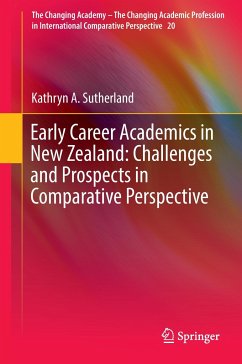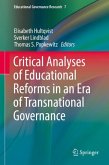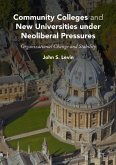What does it mean to be starting an academic career in the twenty first century? What challenges and prospects are new academics facing and how are they dealing with these? This book provides answers to these questions through an investigation of the experiences of early career academics in New Zealand universities. Filling a gap in the international literature on the academic profession by providing a comprehensive overview of the experiences of New Zealand academics, the book includes research findings from a national survey covering all eight New Zealand universities. This research is also compared with various findings from the 2007 Changing Academic Profession survey in 19 other countries. The book encourages readers to think about the early career academic experience in New Zealand in relation to their own experiences of the academic profession internationally.
Key areas of focus in the nine chapters include: the teaching, research, and service preferences and activitiesof early career academics; work-life balance; satisfaction; the experiences of Maori academics; and professional development and support for all early career academics. Underpinning the book is the issue of the socialisation of early career academics into the academic profession in the twenty first century, and how structure and agency interact to affect that socialisation. Suggestions are made, and links to freely available online resources are provided, for improving socialisation at the individual, departmental, institutional, and national levels.
Key areas of focus in the nine chapters include: the teaching, research, and service preferences and activitiesof early career academics; work-life balance; satisfaction; the experiences of Maori academics; and professional development and support for all early career academics. Underpinning the book is the issue of the socialisation of early career academics into the academic profession in the twenty first century, and how structure and agency interact to affect that socialisation. Suggestions are made, and links to freely available online resources are provided, for improving socialisation at the individual, departmental, institutional, and national levels.








